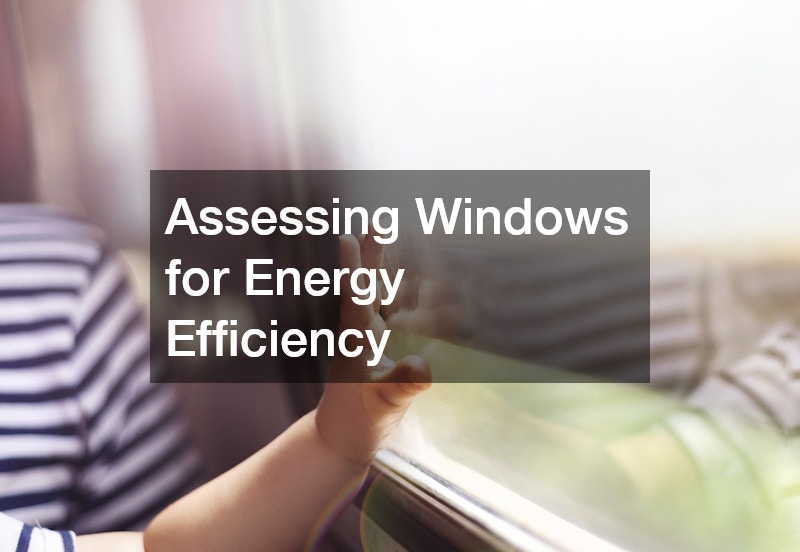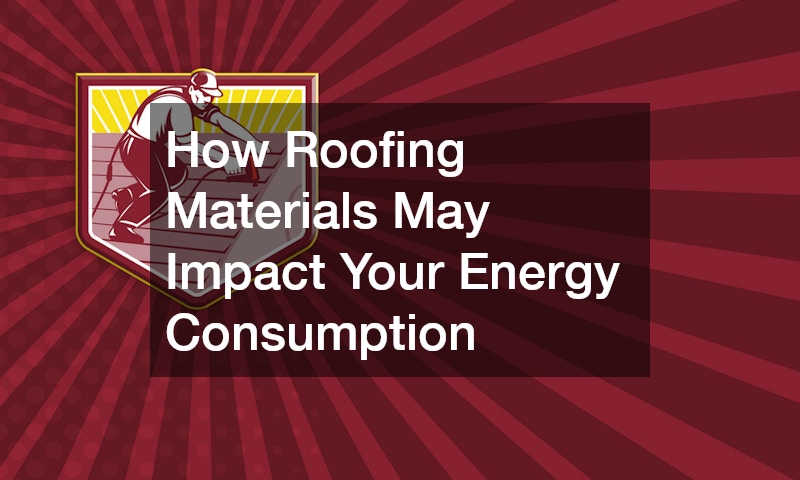In the realm of home energy efficiency, understanding how various components of your home impact energy consumption is crucial. One of the most significant factors affecting your energy bills is the efficiency of your air conditioning system, particularly in climates that experience hot summers. This comprehensive guide will explore different aspects of home energy efficiency, including HVAC systems, insulation, windows, roofing, and garage doors, providing you with the information needed to make informed decisions about your home’s energy use and potentially reduce the energy consumption of AC.
Many home buyers are often surprised to discover how interconnected the components of their new homes are when it comes to energy efficiency. For instance, the type of roofing and the condition of your HVAC system can significantly affect the energy consumption of AC. We’ll delve into the specifics, exploring how each element contributes to a more energy-efficient home environment.
By the end of this article, our aim is to equip you with the knowledge needed to assess your current energy usage, identify areas for improvement, and make wiser investments that not only enhance comfort but also reduce the energy consumption of AC. Let’s delve into each vital aspect of your home’s energy efficiency, starting with the basics of HVAC systems.
Understanding the Basics of HVAC Systems

HVAC, an acronym for Heating, Ventilation, and Air Conditioning, is the technology responsible for regulating comfort levels in indoor environments. An efficient HVAC system can substantially reduce the energy consumption of AC by ensuring that your home remains at a stable temperature throughout the year. Whether it’s through traditional systems or more modern ductless mini split systems, understanding HVAC basics is fundamental to optimizing home energy use.
Central air conditioning systems, a common type of HVAC, distribute conditioned air throughout the home via a network of ducts. While effective, these systems can become inefficient if not properly maintained, leading to increased energy consumption of AC. Regular AC service is essential to maintaining efficiency, preventing breakdowns, and extending the lifespan of your system.
Moreover, the HVAC industry is rapidly evolving, with advancements such as smart thermostats and ductless mini-split systems offering the potential for improved efficiency. New homeowners considering an upgrade should weigh the benefits of these modern technologies, as they can significantly reduce the energy consumption of AC and enhance overall comfort.
The Role of Your Insulation in Energy Efficiency

Insulation plays a pivotal role in maintaining the efficiency of your HVAC system by minimizing heat transfer between the interior and exterior of your home. Proper insulation can dramatically decrease the energy consumption of AC by retaining cool air during summer months and preventing heat loss in winter. This helps in maintaining a comfortable indoor environment, reducing the workload on your HVAC system.
There are various types of insulation materials available, including fiberglass, cellulose, and foam, each with unique properties affecting thermal performance. The effectiveness of your insulation depends on factors such as material, thickness, and installation quality. Ensuring that your home is well-insulated can lead to substantial savings on your energy bills and reduce the energy consumption of AC.
New homeowners should consider having a professional energy audit to determine areas where insulation may be improved. This assessment can reveal hidden issues that contribute to higher energy consumption, allowing for targeted upgrades that enhance your home’s overall efficiency without necessitating an hvac system replacement.
Assessing Windows for Energy Efficiency

Windows are another critical component impacting the energy efficiency of a home. They can be responsible for up to 30% of energy loss, influencing the energy consumption of AC significantly. Selecting energy-efficient windows can reduce this unwanted heat transfer, helping homes stay cooler in summer and warmer in winter.
The U-factor and Solar Heat Gain Coefficient (SHGC) are two essential ratings to consider when evaluating windows. A lower U-factor indicates better insulation properties, while a lower SHGC represents improved blocking of heat from direct sunlight. These ratings assist new homeowners in choosing windows that better match their regional climate needs, ultimately reducing the energy consumption of AC.
Additionally, new homeowners can enhance existing windows’ efficiency through strategies such as applying low-emissivity coatings or installing thermal curtains. These modifications add an extra layer of insulation, often resulting in a noticeable decrease in the energy consumption of AC, contributing to lower utility bills.
How Roofing Materials May Impact Your Energy Consumption

The choice of roofing materials can greatly affect your home’s energy efficiency. Lighter-colored roofing reflects more sunlight, which can significantly reduce heat absorption and subsequently lower the energy consumption of AC. As a result, adequately selected roofing materials can lead to energy savings by decreasing the cooling load on the HVAC system during hot weather.
Metal roofing, for instance, is known for its reflective capabilities as well as its durability, making it a popular choice for energy-conscious homeowners. When selecting roofing materials, consider not only the initial costs but also the long-term energy savings and maintenance requirements. Collaborating with knowledgeable roofing contractors can help in selecting the most energy-efficient materials, catering to the specific climate and style preferences.
Aside from material selection, proper installation is essential for ensuring optimal energy efficiency. Poorly installed roofing can lead to leaks and thermal inefficiencies, which may increase the energy consumption of AC. By working with reputable roofing contractors, you ensure that your roofing system contributes positively to your home’s energy efficiency goals.
Factors to Consider When Choosing a New AC Unit
Choosing a new AC unit involves several critical considerations to ensure you select a system that efficiently cools your home without excessive energy use. Energy efficiency ratings, such as Seasonal Energy Efficiency Ratio (SEER), are important metrics in understanding a unit’s cooling output relative to power consumption. A higher SEER rating indicates a more energy-efficient unit that can lower the energy consumption of AC drastically.
The size of the AC unit is another pivotal factor in its efficiency. A unit too small will struggle to cool your space adequately, leading to increased wear and higher energy consumption of AC. Conversely, a unit that is too large will cycle on and off frequently, wasting energy and leading to higher costs.
New homeowners should also consider modern AC technologies such as variable-speed compressors and smart thermostats. These advancements allow more precise temperature control and optimization based on real-time conditions, contributing to reduced energy consumption of AC while maintaining a comfortable indoor climate.
Importance of Regular AC Service and Maintenance
Regular AC service and maintenance are vital in sustaining the energy efficiency of your HVAC system. Without consistent maintenance, the system becomes prone to wear and tear, leading to inefficiencies that increase the energy consumption of AC. Routine checks can prevent minor issues from escalating into costly repairs or replacements.
Professional maintenance typically involves cleaning or replacing air filters, checking refrigerant levels, cleaning coils, and ensuring that all components function optimally. These actions keep your AC running at its best, reducing the energy consumption of AC and prolonging your system’s operational life.
New homeowners should schedule a professional AC service at least once a year, ideally before the cooling season begins. This proactive approach ensures that the unit is in optimal condition when demand peaks, helping maintain a consistent and reduced energy consumption of AC throughout the hottest months.
Understanding Heating and Cooling Loads in Your Home
Heating and cooling loads refer to the amount of heating or cooling required to maintain a desired indoor temperature. Understanding these loads is crucial to selecting the appropriate HVAC system and enhancing energy efficiency. Accurate load calculations ensure that your system is neither overworked nor underperforming, thus minimizing the energy consumption of AC.
Factors influencing these loads include the size of the home, local climate, insulation levels, and window efficiency. A well-insulated home with efficient windows requires less energy input to maintain comfortable temperatures, thereby lowering the energy consumption of AC and heating systems.
Hiring a professional to perform a detailed energy audit will help assess your home’s heating and cooling loads accurately. The results can guide necessary adjustments, whether it be upgrading insulation, enhancing sealing or selecting a new, more efficient HVAC unit.
Signs Your HVAC System May Need Replacement
Even well-maintained HVAC systems eventually face the need for replacement, particularly as they age and become less efficient. Increased energy bills without a corresponding increase in energy usage can be a key indicator that your system is becoming less efficient and leading to higher energy consumption of AC and heating.
The noisy operation, frequent repairs, and inability to maintain comfortable indoor temperatures also signal it might be time for an HVAC system replacement. Older systems lack the energy-efficient technologies present in modern units, which is an important consideration when energy savings are a priority.
When evaluating whether or not to replace your HVAC system, the age of the unit, typically over 10-15 years, efficiency loss, and repair costs should all be considered. Replacing an old system can offer significant improvements in home comfort and reductions in the energy consumption of AC.
The Impact of Garage Doors on Home Energy Consumption
Garage doors are often overlooked in discussions about home energy efficiency, yet they can contribute significantly to heat transfer, affecting the energy consumption of AC systems. Insulated garage doors reduce heat transfer between the garage and the connected living spaces, contributing to overall home efficiency.
An uninsulated or poorly sealed garage door can lead to a considerable amount of energy loss, especially if the garage is attached to the home. Sealing gaps and incorporating insulation can lead to noticeable reductions in the energy consumption of AC during extreme weather conditions.
Regular garage door repairs also play a role in maintaining energy efficiency, as a well-functioning door will minimize drafts and maintain the integrity of the home’s thermal envelope. Addressing these aspects can enhance your home’s energy performance and contribute to a more streamlined use of energy.
Choosing the Right Roofing Contractors for Energy Efficiency
Selecting the right roofing contractors is vital in ensuring your roofing project meets energy efficiency goals. Experienced contractors will recommend solutions that boost your roof’s thermal performance, significantly impacting the energy consumption of AC and heating in your home.
Quality installation is as important as material selection. A reputable contractor will ensure that your roofing system is installed correctly, preventing leaks and thermal inefficiencies. This alignment with energy efficiency standards can help minimize the energy consumption of AC and contribute to more stable indoor temperatures.
New homeowners should look for roofing contractors with a proven track record in energy-efficient installations and ask for references or case studies demonstrating their work. Engaging with knowledgeable contractors ensures you receive a roofing system that aligns with your energy conservation objectives.
Evaluating the Energy Efficiency Ratings of AC Units
Energy efficiency ratings such as SEER, EER, and ENERGY STAR are critical benchmarks to consider when evaluating AC units. These ratings provide insights into how much energy an AC unit uses to cool a given space, directly influencing the energy consumption of AC. The higher the rating, the more efficient the unit is considered.
SEER measures seasonal energy efficiency and is a good predictor of the unit’s performance across varying conditions. EER, or Energy Efficiency Ratio, provides a constant measurement typically used for fixed conditions. Assessing these ratings helps homeowners select units that effectively balance performance with cost and energy savings.
Selecting an AC unit with high-efficiency ratings can lead to significant reductions in the energy consumption of AC, thus lowering utility bills. ENERGY STAR-rated units are third-party tested for efficiency, often proving to be worthwhile investments in homes aiming for lower energy consumption.
Tips for Reducing Overall Energy Consumption in Your Home
Reducing energy consumption in your home requires a combination of strategic changes and mindful habit alterations. Incorporating energy-efficient appliances and systems, including modern HVAC and AC units, can significantly reduce the energy consumption of AC and other home systems. These upgrades, although possibly upfront investments, often result in long-term savings and increased property value.
Adopting energy-saving habits is another effective method to lower consumption. Simple actions such as turning off unused appliances, utilizing natural light, and setting thermostats wisely contribute to the lower energy consumption of AC and overall home operation. Awareness and implementation of these everyday practices play essential roles in achieving energy efficiency goals.
Furthermore, consider embracing renewable energy solutions such as solar panels when possible. Renewable energy solutions can offset traditional energy use, reducing reliance on conventional sources and further decreasing the energy consumption of AC units and other home electricity demands.
The journey toward a more energy-efficient home is multifaceted, involving various components of your dwelling from HVAC systems to insulation and roofing. Reducing the energy consumption of AC and other energy-demanding systems can result in financial savings and a smaller environmental footprint. By understanding the underlying factors contributing to energy use in your home, you are better equipped to make decisions that optimize energy usage and enhance overall comfort.
Proactive steps such as maintaining a robust hvac system, enhancing insulation, selecting high-efficiency windows, and ensuring proper roofing installations with qualified roofing contractors are all crucial. These strategies not only prevent unnecessary energy loss but can also lead to a healthier living environment.
In conclusion, every new homeowner should periodically evaluate their energy consumption practices, taking advantage of advancements in technology and building methods to achieve a sustainable and economically viable living space. By being mindful of the energy consumption of ac and other components, your journey toward energy efficiency will not only benefit your home but also extend to the global community.



